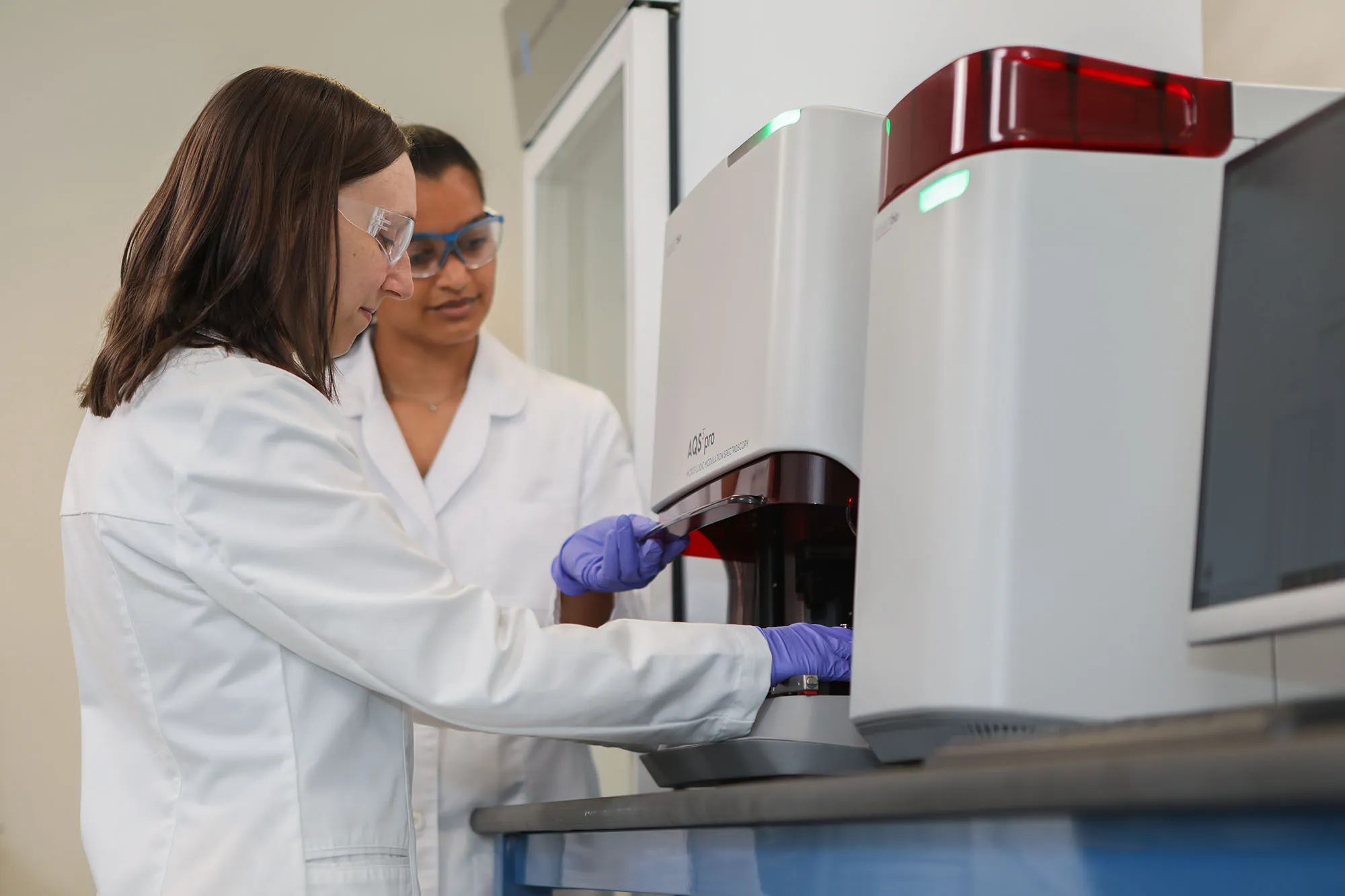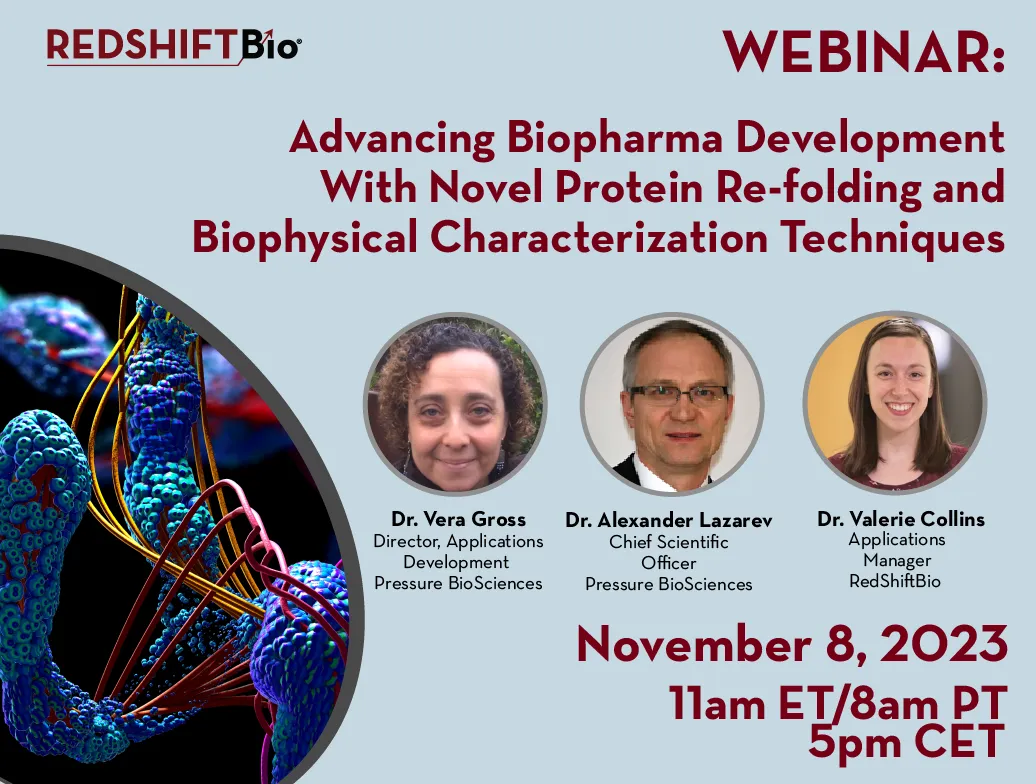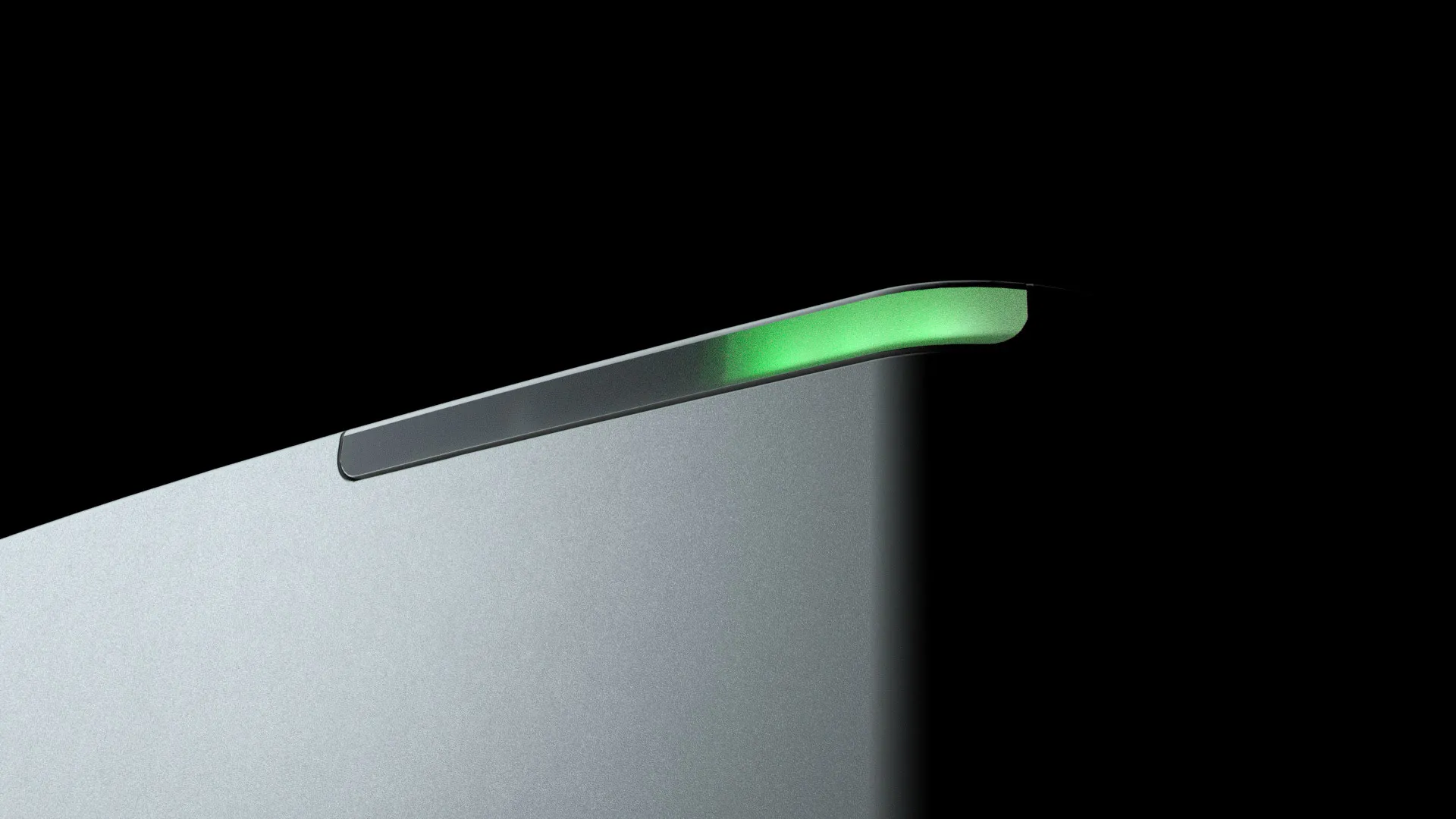
Advancing Biopharma Development With Novel Protein Refolding and Biophysical Characterization Techniques

Protein stability is one of the most important critical quality attributes for a new biologic drug. Unstable or misfolded proteins are prone to aggregation and precipitation, which can lead to lower activity as well as increased immunogenicity. There has been a long-standing interest in renaturing unfolded, misfolded, or precipitated proteins.
This webinar will discuss a novel method for solubilizing and folding proteins using hydrostatic pressure to generate proteins whose structure matches that of the native protein. This method can also be applied to proteins expressed as bacterial inclusion bodies to solubilize and fold proteins into the desired conformation. The ability to rapidly unfold and refold proteins enables the use of harsher conditions during protein production and purification while still yielding natively folded and active protein products.
In this study, we compare changes in protein structure induced by either heat or high hydrostatic pressure using a range of temperature and pressure conditions with two model proteins: ovalbumin and chymotrypsinogen. We also examine the effect of hydrostatic pressure on protein solubility and demonstrate that insoluble protein aggregates can be dissolved using brief high-pressure incubation in combination with mildly chaotropic buffer such as 2M urea. We further demonstrate that these mild solubilization conditions can be compatible with protein refolding to regenerate the native protein structure. We characterize protein unfolding and refolding by thermal transition (Tm) assay and use microfluidic Modulation Spectroscopy (MMS) to obtain in-depth comparisons of the refolded protein and the native starting material. Using MMS we were able to observe subtle differences in protein folding which suggest that structural rearrangements induced by high pressure may be distinct from those induced by heating.
MMS is an innovative IR technique that utilizes a quantum cascade laser to enable protein measurements from 0.1 mg/mL to 200 mg/mL, a microfluidic flow cell for accurate real-time background subtraction, and fully automated sample handling to save time and effort. This is a proven technology for measuring protein structure and stability throughout the development process, with unsurpassed sensitivity, reproducibility, and ease of use.


